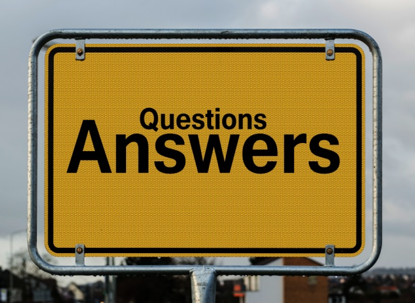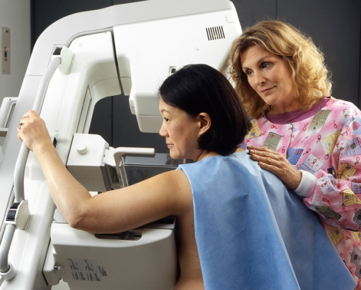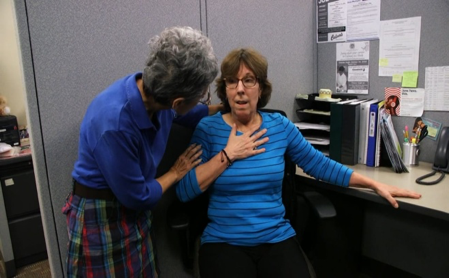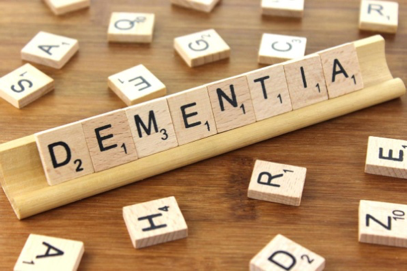
There is so much confusing information out there today regarding hormone therapy. What is true and what is a myth? Should menopausal women undergo hormone replacement when they are symptomatic, or tough it out because they believe hormones are dangerous? For starters, you can check out Hormones 101 to learn some basics.
Let me help you sort out some of the most common misunderstandings about hormone therapy.
1st Myth: Hormone therapy causes cancer.
Facts: The truth is that no study shows the bioidentical hormones are associated with an increase in cancer. In fact, when estrogen alone was given, there was a decrease in breast cancer in one study.(1) This misunderstanding comes from some of the synthetic progestins being associated with higher rates of breast cancer, so we don’t use those in our practice.
 It is also important to have a baseline mammogram to make sure there is not an undetected cancer before starting any sort of hormonal therapy. This is because many breast tumors contain hormone receptors and estrogen may stimulate the growth. Endometrial hyperplasia, thought to be a precancerous condition can be induced in some women if estrogen is given improperly and out of balance with progesterone in women with an intact uterus.Hormones are powerful, and they are used as a regulated prescription because they need to be used wisely. But in the hands of a knowledgeable provider, the benefits outweigh any risks.
It is also important to have a baseline mammogram to make sure there is not an undetected cancer before starting any sort of hormonal therapy. This is because many breast tumors contain hormone receptors and estrogen may stimulate the growth. Endometrial hyperplasia, thought to be a precancerous condition can be induced in some women if estrogen is given improperly and out of balance with progesterone in women with an intact uterus.Hormones are powerful, and they are used as a regulated prescription because they need to be used wisely. But in the hands of a knowledgeable provider, the benefits outweigh any risks.
Hormones are powerful, and they are used as a regulated prescription because they need to be used wisely. But in the hands of a knowledgeable provider, the benefits outweigh any risks.
2nd Myth: Hormone therapy causes weight gain.
Facts: Some of the birth control methods using synthetic hormones especially DepoProvera shots, are associated with weight gain. Normal hormone cycles can involve some shifts in fluids and weight, but bioidentical hormone replacement is generally weight neutral.
Menopause itself can be associated with some weight gain as the metabolism slows down. Check out my The Thyroid: Master of Metabolism to learn more metabolism and thyroid. If you are packing on the pounds or struggling to lose them, restoring a more youthful hormone balance is often helpful. In addition, you may need a thyroid check or some dietary changes.
3rd Myth: Hormone therapy causes heart attacks.
Facts: Overall, estrogen used for appropriate women, at the right time, decreases heart disease (2). In the Women’s Health Initiative, a small increase in heart attacks was reported in the group on estrogen and medroxyprogesterone, a synthetic progestin, were shown to cause many of the downside effects (3).
Subanalysis also found that the older women who had been 10-15 years past menopause at the beginning of the study were the ones where the increase was found (4).

It is well known that heart disease increases significantly 10-15 years after menopause, once the protective effects of estrogen are lost. Giving estrogen to a woman with known heart disease is risky because it is known to give a bump in heart attacks in this group before the protective effects settle in (5).
I would recommend getting the appropriate hormone dose early, at the onset of hormone-related symptoms, rather than waiting until the aging of the coronary arteries makes it risky. Then you can enjoy the protection from heart disease. But if you are already in this stage, it’s important to work with someone who specializes in menopause and hormone related issues and understands the complexities of menopause and hormone related issues.
4th Myth: I don’t have hot flashes, so I don’t need hormone therapy.
Facts: There are many symptoms associated with hormone deficiency besides hot flashes. Personally, I had very few hot flushes or night sweats, but I had plenty of “brain fog”, mood swings, and poor sleep.
Many women notice worsening of depression, weight gain, low energy, joint pain, loss of libido, vaginal dryness and inflammation, pelvic prolapse problems, and urinary incontinence. Eventually, some will develop osteoporosis (thinning of the bones that increase the risk of fractures), increased risk of dementia and heart disease. Many women have lots of symptoms and just have not connected them to the lack of hormones.
So, if you feel you may experience symptoms, even if they are not hot flashes, it’s important to find a provider who can help you understand why you are experiencing those symptoms.
5th Myth: Feeling bad and hurting are just part of aging.
Facts: Many of the symptoms we think of as being part of “old age” are actually associated with hormone deficiency. I remember how surprised I was when I first took some estrogen and the pain in my neck went away!
There is a type of joint degeneration related to hormone deficiency, especially thyroid hormone that appears around menopause called climacteric arthritis (6). We don’t age very fast before menopause, but after is a different story. Studies show that women on hormone replacement live longer and are healthier(7)(8).
6th Myth: Hormone therapy causes dementia.
Facts: Studies who observe women who have taken hormones compared to those who have never supplemented their hormones, generally show lower rates of dementia. Yuko Hara, Ph.D. has a great article about this.
In the Women’s Health Initiative, there was a subgroup studied for dementia and the effects of hormones. Equine estrogens combined with synthetic medroxyprogesterone were given to women 65  years of age and over and they were observed for dementia. In this study, there appeared to be a slight worsening outcome in the hormone group over the placebo (9). Many felt there were problems with this poor study design. Just as with heart disease, starting in an older group after the damage has already started is not likely to help determine cause and effect. Subsequent studies that dealt with younger women (within 5-6 years of menopause) and using more natural hormones have failed to show any negative effects.
years of age and over and they were observed for dementia. In this study, there appeared to be a slight worsening outcome in the hormone group over the placebo (9). Many felt there were problems with this poor study design. Just as with heart disease, starting in an older group after the damage has already started is not likely to help determine cause and effect. Subsequent studies that dealt with younger women (within 5-6 years of menopause) and using more natural hormones have failed to show any negative effects.
Recent research shows dementia to be the result of many factors, not just one item, so a study looking for benefit from one intervention is not likely to show large benefits. It is also now better understood that neurodegeneration (brain aging and decline) is the effect of chronic inflammation in the brain and nervous system probably starting 20 years before the first symptoms appear. Most studies on hormones and dementia are much too short (2-5 years) to show accurate results. For more information, see our articles on brain health.
7th Myth: Testosterone will make me grow a beard.
Facts: The benefits usually far outweigh any side effects. Testosterone is the only hormone that can restore lost libido. Testosterone is responsible for secondary sex characteristics in men such as beard, body hair, and muscle mass. It is also involved in libido, energy, sense of well-being, endurance, and motivation. The brain has testosterone and estrogen receptors and a deficiency of either can affect mood, memory, and concentration. If indicated, we do supply a low dose of testosterone for women, but not enough to give a beard!
For example, men are quite deficient below 300 ng/dL and do quite well about 800-1100 ng/dL. Our goal for women is usually under 200 and individualized to her symptoms and situation. If there are any undesirable effects, such as excessive libido, facial hair, or acne, we simply back off the dosing.
Hopefully, this helps shed some light on hormone therapy and can help you take steps to improve your health and vitality. for more information check out these links.
Have More Questions? Call us!
What have you heard about hormone therapy? Do you think it is myth or truth? Share your thoughts in the comments below.




